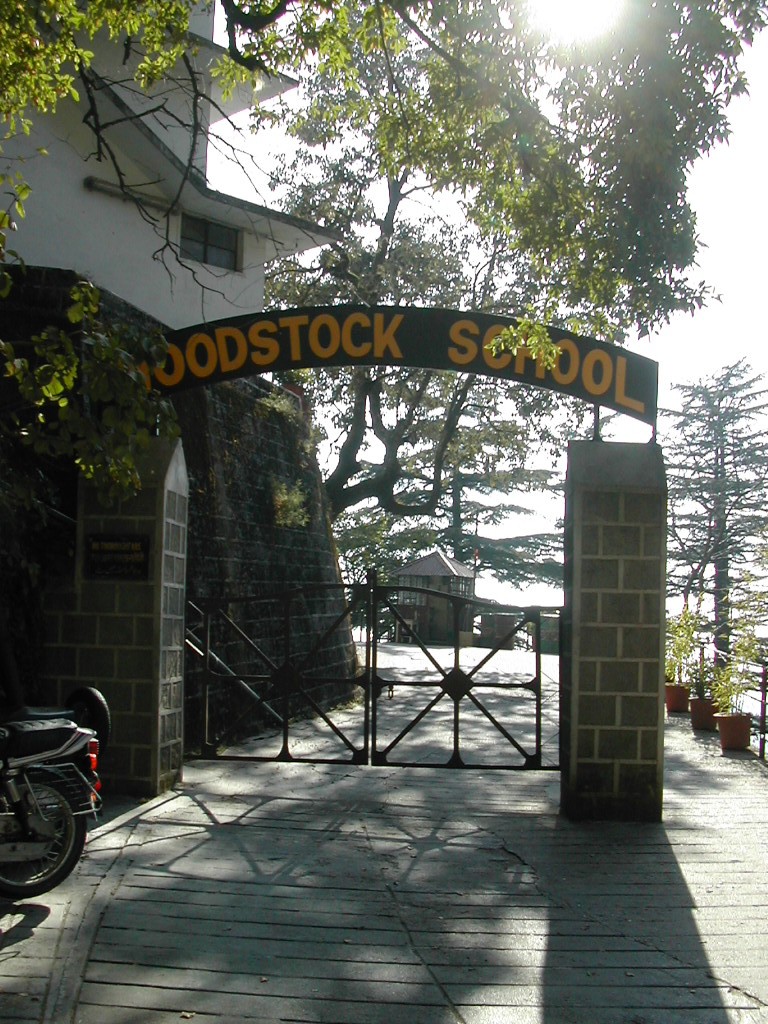If you search Google for Woodstock School, one of the top results you find is my site. This means that I’ve become an unofficial source of information on the school and what it’s really like to go there.
Back in February, I was delighted to receive email from a prospective student, who wrote: “I recently came across a study abroad program called SAGE. They send students to the Woodstock school for a semester or year, and I am extremely interested. I found your site and read your pages about Woodstock. It sounded like a great experience! I was wondering if I could ask you a few questions about it because I am beginning the application process and would like to hear more about the school from alumni and current students.”
She then asked a list of questions, which she has graciously given me permission to publish, along with the answers I sent to her.
1. What was the best aspect of Woodstock?
The people, both staff and students. We had our teenage falling outs etc., but mostly everyone got along even back then, and now we are all each other’s best friends, in spite of (because of?) a wide variety of backgrounds, experiences, lifestyles, and opinions.
I am class secretary for my class and have kept in close touch with most of them over the years, but also with lots of other Woodstockers. For example, Nathan [Scott, head of the SAGE Program] is the younger brother of my classmate Chris, and Nathan and his wife spent part of their honeymoon at our home in Italy. Woodstock relationships last, and that’s been very important to me.
These contacts are also of practical use in later life. At various points in my career I have found jobs for WS’ers, and yesterday a WS alumnus whom I met after we’d both been in Milan for many years took me to lunch to offer me work!
2. What could have been better?
The food! It was legendarily bad in our day and we were always hungry. I’ve been back on quite a few visits in recent years and can testify that it is much improved. Although we’re still talking about a remote place in India where you don’t always find the ingredients you might want… I’m told the students still complain. ; ) That’s why everyone goes to the bazaar on Saturday to eat.
3. What was the most valuable lesson you learned while at Woodstock?
Hard to say – I learned so much in so many ways. I guess it would be something to do with getting along and working and living with all kinds of people.
4. Why do you think diversity is important for a school setting and how did it help you learn?
Even if you’re fortunate enough to go to a school where they try to teach you about world cultures, religions, etc., you’re never going to really get it until you’ve been living and interacting daily with people profoundly different from yourself. And it’s especially valuable to do this while you’re young. Woodstockers understand right down to their bones that someone can think and believe and act differently than they do, and still be a good person with basically the same motivations as themselves. I think that’s a foundation of real understanding, and a place from which to negotiate our differences. I truly believe that, if there were more schools like Woodstock, there would be less war in the world.
5. What were the teachers like? Were they easy to understand?
In our day they were a mix of Americans, Brits, New Zealanders, Canadians, Indians, and probably more that I don’t now remember. They were mostly very good teachers. They certainly prepared us well – after Woodstock, college seemed pretty easy!
Another advantage of WS is that class sizes are small, so every student gets a lot of teacher attention. And you’re living in a small environment with the staff as well as students, so you are in constant contact with them. Staff are involved in all sorts of activities besides teaching – chaperoning hikes and trips, supervising study halls in the dorms, some play in the band and orchestra and sing in the choir, etc.
It takes a special kind of person to want to go live in a remote corner of India to teach international students. They tend to be more dedicated teachers, and truly interested in being involved in their students’ lives. Any Woodstocker will tell stories of specific staff members whom they remember fondly. I’m still in close touch with several of my favorite WS teachers.
6. Did Woodstock prepare you for the future well?
Yes, though I use what I learned in my extra-curriculars more than what I learned in classes. I was on the newspaper and yearbook staffs, and in student government, and I tended to be called upon for public works art projects (“The elementary school looks a bit drab – why don’t you do 12 enormous batiks to brighten it up?” “We need an ass’s head for Midsummer Night’s Dream…”).
Because there are relatively few students, everyone has a chance to get into everything. My roommate was captain of the basketball team and the cheerleaders (we weren’t very serious about cheerleading – a bunch of girls just decided they wanted to do it, so they did it. However, that meant that only the boys had any cheering since the same girls played on all the girls’ teams!). My roommate was also in band, orchestra and choir, and we worked on the yearbook together. There were also opportunities for volunteer work, which is even more strongly encouraged today.
And then there was the environment we were in – lots of India to explore even within the immediate area.
So WS taught us to be true all-rounders. The result for me has been a career marked by flexibility and quick adaptation to whatever situation I found myself in. And I have no fear at all of plunging in and learning new things as I need them, which is a key requirement in today’s working world. Woodstock (or any other school) could not have prepared me specifically for my career – the things I do now were undreamt-of in 1981. But my preparation at WS gave me confidence that I can learn anything I need to, and invent the things that no one else knows how to do yet.
I also learned to write well at Woodstock, and that’s a skill that will always be important in almost any kind of work.
7. On a scale from 1 to 10, how difficult were the classes?
I don’t know what to compare them with. I was a lazy student, and worked to keep my average above B only because that let me spend the compulsory evening study hall period in my dorm room instead of the dining hall. Some things like English and History I did well in without much effort, sciences were harder for me.
If it helps for comparison, I can say that I did very well on PSATs and SATs. And, as I said, I found university fairly easy after Woodstock. So I guess WS classes were fairly rigorous, though they didn’t seem that way to me at the time. On the other hand, the nephew of one of my classmates attended WS briefly last fall (he returned home to the US for family reasons after only a few months), and said he found WS easier than his school in northern California. Which surprised me. He might have found that it got harder as the year went on.




